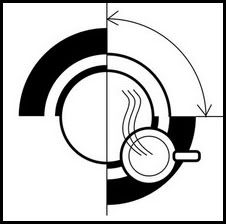A post from Becky’s husband:
As Becky’s husband of over 33 years, I have put together for her a final health update. Only week or so before we lost her, when it first became clear how this was likely to turn out, she asked me to write a synopsis of the history of her illness, with more details about the later stages, for a final blog entry she wanted to make about this. The reason for my involvement was to save her time and effort; she would edit my draft to make it her own without the need to do all the writing from scratch. I began right away, but I did not get it ready for her soon enough. There was a lot going on, and we all thought we would have more time—probably a few weeks. However, I have decided finally to complete this task as best I can and get it posted for her at last. She would have converted it all to first person as she modified it into her own words, of course, but I don’t think I can really do that for her.
This will not be the last entry to her blog. I have also written a letter to her that I intend to post here in a day or two. The words below mainly give an account of her illness. I think that is what she wanted to do in her health update. My words to be offered later will be a personal but open letter.
Final Health Update
Early in 2005 Becky had a routine physical with her general practitioner, who noticed that she had an unusual number of bruises. One possible cause for this can be low platelet count. To be safe, he ordered blood tests. Results did show her platelet count was slightly below normal. He explained that a number slightly below normal was probably not a significant problem; but being careful, he referred her to a hematologist who specializes in blood disorders.
The hematologist ordered more tests and diagnosed her condition as a very early stage of MDS or Myelodysplastic Syndrome. The basis for this problem is an acquired genetic defect. That is, it results from genetic errors acquired over time. These errors are neither inherited from parents nor passed on to descendants. MDS causes low blood counts that may affect one, two, or all three blood cell lines (red cells, white cells, platelets). The course of MDS can be highly variable and is not readily predictable. In some people it may progress rapidly; in others it progresses extremely slowly, and it may be many years before it begins to cause serious problems. In its earliest stages when the counts are not low enough to cause weakness (due to a low red count) or excessive susceptibility to infection (due to a low white count) or bleeding problems (due to a low platelet count), the usual course is simply to follow the patient and administer no treatment.
So that is what we did. However during this period while conventional medicine had nothing to offer anyway, we tried various treatments based upon complementary medicine that were largely non-pharmacological and noninvasive. These included things such as energy healing methods, cold laser, etc. These methods can cause no harm, and they may well have slowed the progression of her disease. No one can authoritatively say for sure. But certainly these methods did not bring about a physical cure.
There were two recently approved drugs that can be used to treat MDS when it progresses, but they are not curative. These can be effective in halting progression and even reversing the problems in many cases, for either short or long periods of time, but they are not helpful for everyone. The only cure recognized by traditional Western medicine is a transplant of bone marrow or marrow stem cells from a healthy matched donor.
Becky’s blood counts were relatively stable for a couple of years, but did decline very slowly. A second opinion was sought and obtained when we traveled to New York for a meeting with a leading expert in treating MDS cases. However, the results of this trip and the advice offered were essentially the same as that of our local doctors. Eventually all three cell lines were involved, and her counts became extremely low. She began to require transfusions of red cells, and eventually of platelets as well.
As things began to move faster, she tried both of the available drugs, one after the other, in 2008 and early 2009. However, both were ineffective for her; and in July of 2009, she underwent a bone marrow stem cell transplant performed at Vanderbilt University Hospital in Nashville with a team of hematologist/oncologists. She was only in the hospital for about 10 days but was required to live very nearby in Nashville for about 4 months, with daily trips (typically lasting almost all day long) to the clinic for about 2 months. Later the frequency of clinic visits was reduced to alternate days and then less often. After 4 months, we moved back to Huntsville but continued monthly visits to Vanderbilt.
For a year or so, the transplant results were exceptionally good, and her counts returned to normal and became stable. Eventually her strength returned as well. However, in the fall of 2010, her counts began to fall once again; and by the end of the year, she once more required regular transfusions of red cells and later platelets as well. Nevertheless, buoyed by an infusion of red cells (and her boundless optimism), she and I went along on a school trip to France with our younger daughter in the spring of 2011. Becky did pretty well, including going to the top of the Eiffel Tower. Nevertheless, by late April it seemed to us that she had less energy than she should have, even accounting for low red cell counts.
There were very important events coming up: Our younger daughter was graduating from high school in May, our elder daughter was to be married (at Disneyworld) in June with a reception at our farm in Tennessee to follow 10 days later, and Becky’s dish convention was coming up in July. And, at least for the wedding, there were some details still to be worked out. During the spring, her doctors at Vanderbilt recommended that she start treatments with a low dose of a drug she had tried before, which she did. A higher dose was not recommended this soon after transplant. And although this drug had not been effective earlier, her new immune system after transplant offered a very different host environment where it might be effective this time around. Also, it causes relatively few side effects and would not likely interfere with the upcoming happy events.
The plan was to try this for a while and see how it might work. If it did not reverse the disease in a few months, then we would return to Vanderbilt early in July after the graduation and the wedding to discuss what steps we should take next to make her well once again. So while this was a serious situation, we all remained optimistic. Our attitude was that we had been through all this before, after all; and we could do it again if necessary.
Becky attended and enjoyed the graduation and the wedding and the wedding reception, but she did seem to be getting weaker; and by the time of the reception she was also having a little shortness of breath. By the end of June, it was becoming clear that some new problems were developing. In addition to having trouble breathing, she began to have trouble swallowing and her voice also became nasal and a little hoarse.
When she went to her regular appointment on July 5 at Vanderbilt, they decided to put her into the hospital for a few days for tests. The tests included various CT scans, an MRI of her brain, and visits with the ear, nose, and throat doctors who used a scope to examine her nasal passages and throat. They found no structural problems. A spinal tap was also performed. The last visit was with a speech pathologist, who suggested that there were issues in the soft palate and her epiglottis was probably not opening and closing properly. No further diagnosis was made at this point. However, she seemed to improve slightly over the 3 or 4 days she was in the hospital. So she was released while the doctors pondered the test results. About the only thing they had to say at this point was to voice the opinion that this new set of problems probably was (surprisingly) unrelated to her bone marrow problems.
Her improvement was brief, however. When she returned for a regular appointment with her doctor in Huntsville on July 18, her breathing, swallowing, and speaking had become seriously impaired. He said she needed to return immediately to her transplant doctors at Vanderbilt for more attention. At Vanderbilt, the doctors were still puzzled and concerned that she was worse, rather than improved. By this time she needed oxygen, and things were beginning to look quite serious. At almost the last minute, Becky’s travel to the dish convention had to be cancelled because she really had become unable to travel safely.
She spent the next week in the hospital undergoing a new series of tests, this time focused mostly on neurology. The common denominator appeared to have to do with the motor neurons—the nerves that move muscles. She was not breathing well because the muscles that control breathing and the diaphragm were not moving properly. She was not swallowing or speaking normally because the muscles of the soft palate were not functioning properly. Tests included a swallowing study and tests of the nerves affecting muscular movement, as well as nerve conduction studies. An electromyogram test was performed to help understand what sorts of signals the nerves were sending to the muscles and how the muscles were responding. An extensive panel of cell studies was ordered, but final results of some of those tests were expected to take weeks.
It was not until about July 21 or 22 that some consensus was reached about the true nature of Becky’s new disease process, and even then a very precise diagnosis was not possible. However, the news was not good. The general opinion was that this definitely was some sort of neuromuscular disease. Because it had been progressing very rapidly, the most likely expectation for the future was that it might continue to progress very rapidly. The prognosis was poor, although again it was stressed that nobody could really predict the course the disease would take because it was an extremely rare situation.
Nonetheless, most of the doctors involved (certainly all the neurologists) expected that—if she decided she wanted to continue—eventually a feeding tube would be needed for nourishment as swallowing would become impossible, and a respirator would be needed to breathe for her because breathing would also become impossible. Becky has always felt she would not want to live like that. Now faced with the reality of the situation, her opinions held unchanged. Becky made her decisions and signed forms indicating “Do Not Resuscitate.”
Hospice care was first mentioned on Friday, July 22. She stayed in the hospital over the weekend in an attempt to help her become accustomed to the noninvasive Bi-Pap breathing support machine to be sent home with her (breathing masks to be worn at night, oxygen to be available at all times.) A lot of careful consideration and soul searching took place over that weekend, but no change of her heart or mind occurred. On Monday, more forms were signed indicating that no invasive treatments were to be used, and arrangements were made for hospice care at home and for appropriate equipment to be delivered.
On Tuesday, July 26, she returned home. While everyone agreed that spontaneous remission can happen and that nobody really could predict for sure what might lie ahead, it was clear that the doctors’ expectations were that she would not recover and that she had no more than a few weeks left. We made a round trip visit to Vanderbilt on Thursday to see a new pulmonologist. Becky liked her, but this doctor had little new to offer.
We lost Becky on Friday morning. The neuromuscular disease had progressed more quickly than anyone, including her doctors, had expected.
She was mentally clear right up to the end, and she even walked a few steps (with a lot of help) about 5 am on Friday; this was only 2 or 3 hours before her body stopped functioning. It is still believed that the new rare disease was unrelated to the older rare disease. The combination of two unrelated diseases this rare in a single person is extraordinarily unusual.
The speed with which this all progressed frankly astonished everyone involved, including her doctors. Although sad and very disappointed, Becky was never frightened about all this. She was sad about leaving us, very frustrated after all we had been through, and uncomfortable for the last week or two. But her belief system (and mine) accepted a much larger reality than we see around us and a continuation after death. She described herself as “spiritual, but not religious.” This belief system supported her well right up to her last moments. She was never afraid, just disappointed to have to leave us and concerned about her daughters.
Well, I’m Still Here; Not Quite
4 hours ago















 Alabama Time
Alabama Time Paris Time
Paris Time Venice Time
Venice Time









